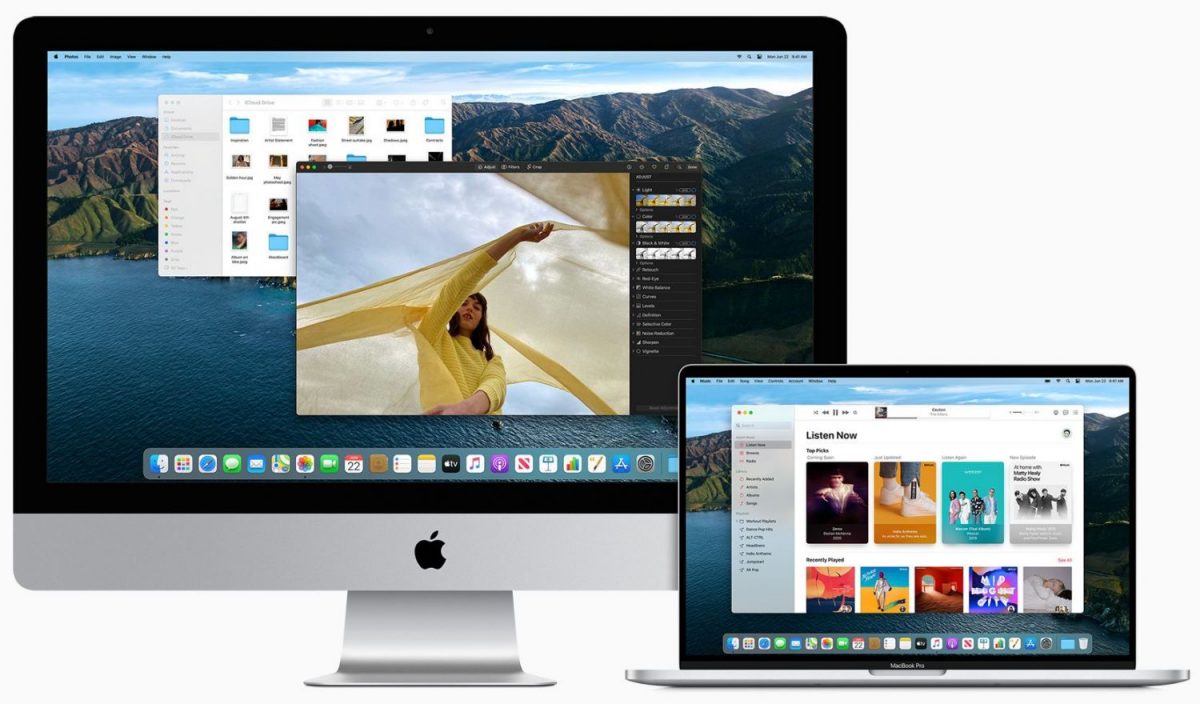- Update Mac Os X Lion 10.7.5
- Mac Os X Lion Update To High Sierra
- Mac Os X Lion Upgrade To Mojave
- Mac Os X Lion Update
Mac OS X 10.7 'Lion' Q&A - Updated August 29, 2011
- Softonic review Windows Desktop customized with Mac icons. Mac OS X Lion Icon Pack is an awesome, free multiplatform program (also available for Mac), that is part of the category Desktop customization software with subcategory Icons (more specifically System & Shell) and has been created by Deviantart.
- Apple formally notes that Mac OS X 10.7 'Lion' is compatible with 'an Intel-based Mac with a Core 2 Duo, i3, i5, i7 or Xeon processor and at least 2 GB of RAM.' It needs to be running Mac OS X 10.6.6 (or higher, 10.6.8 is recommended) 'Snow Leopard' as well.
- OS X Mountain Lion (version 10.8) is the ninth major release of macOS, Apple Inc.' S desktop and server operating system for Macintosh computers. OS X Mountain Lion was released on July 25, 2012 for purchase and download through Apple's Mac App Store, as part of a switch to releasing OS X versions online and every year, rather than every two years or so.
To be notified of new Q&As, sign up for EveryMac.com's bimonthly email list.
Mac OS X Lion (version 10.7) is the eighth major release of macOS, Apple's desktop and server operating system for Macintosh computers. A preview of Mac OS X 10.7 Lion was publicly shown at the 'Back to the Mac' Apple Special Event on October 20, 2010.
If you find this page useful, please Bookmark & Share it. Thank you.
Which Macs are compatible with Mac OS X 10.7 'Lion'? Which Macs are not compatible? Can incompatible Macs be 'hacked' or upgraded to run Mac OS X 10.7 'Lion'?
Apple formally notes that Mac OS X 10.7 'Lion' is compatible with 'an Intel-based Mac with a Core 2 Duo, i3, i5, i7 or Xeonprocessor and [at least] 2 GB of RAM.' It needs to be running Mac OS X 10.6.6 (or higher, 10.6.8 is recommended) 'Snow Leopard' as well.
In other words, assuming sufficient RAM and the final version of 'Snow Leopard' is installed, Lion is compatible with all Intel-based Macs except for those with Core Solo or Core Duo processors. It it not compatible with older PowerPC-based systems either.
Identifying Macs & Determining Processor Type
To check the processor on a particular Mac, select 'About This Mac' under the 'Apple' menu. If you're not in front of a particular Mac and need to check its compatibility, EveryMac.com's 'Maximum Supported Version of Mac OS X' listing from the By Capability section of the site also can be helpful for a single page rundown.

If you need to identify a Mac, look it up with EveryMac.com's Ultimate Mac Lookup by its Serial Number, its Model Identifier listed in software and more.
Determining Installed RAM
Just below the 'Processor' information, the same 'About This Mac' screen also provides the amount of RAM installed. As long as your Mac meets the processor and operating system requirements and it has at least 2 GB of RAM, it is Lion-compatible. If the only incompatibilities are operating system and/or RAM, upgrading the system accordingly will make it compatible.
By default, the following Macs shipped with less than 2 GB of RAM:
If you have one of the above Macs and the RAM has not been upgraded already from the stock configuration, its RAM will need to be upgraded prior to running Lion.
EveryMac.com's Mac Upgrades section provides RAM upgrade instructions for all of these models.
'Hack' Options for Incompatible Macs
As first reported by the well respected hacker, Netkas, the final version of Mac OS X 10.7 'Lion' has a Finder that only runs in 64-bit mode, and as a result, the software cannot be 'hacked' to install on Core Solo or Core Duo-based Macs, as these are 32-bit processors. Earlier developer's preview releases had a Finder capable of running in 32-bit mode and it could be 'forced' to install on these unsupported models, but it is no longer a feasible option.
However, as first reported by XLR8YourMac -- although Apple does not support such upgrades and it may not be cost-effective -- it still is possible to 'hack' the Core Solo and Core Duo Mac mini and iMac models by upgrading the processor to a Core 2 Duo and then installing OS X Lion.
Older PowerPC-based Macs definitely cannot be 'hacked' in any way to support Mac OS X 10.7 'Lion.'
Site sponsor OWC sells RAM compatible with all Intel Macs for systems that need to be upgraded prior to installing Lion.
Permalink | E-mail a Friend | Bookmark & Share | Report an Error/Typo
Suggest a New Q&A | Sign Up for Bimonthly Site Update Notices
Update Mac Os X Lion 10.7.5
<< MacOS X 10.7 'Lion' Q&A (Main)

If you need to identify a Mac, look it up with EveryMac.com's Ultimate Mac Lookup by its Serial Number, its Model Identifier listed in software and more.
Determining Installed RAM
Just below the 'Processor' information, the same 'About This Mac' screen also provides the amount of RAM installed. As long as your Mac meets the processor and operating system requirements and it has at least 2 GB of RAM, it is Lion-compatible. If the only incompatibilities are operating system and/or RAM, upgrading the system accordingly will make it compatible.
By default, the following Macs shipped with less than 2 GB of RAM:
If you have one of the above Macs and the RAM has not been upgraded already from the stock configuration, its RAM will need to be upgraded prior to running Lion.
EveryMac.com's Mac Upgrades section provides RAM upgrade instructions for all of these models.
'Hack' Options for Incompatible Macs
As first reported by the well respected hacker, Netkas, the final version of Mac OS X 10.7 'Lion' has a Finder that only runs in 64-bit mode, and as a result, the software cannot be 'hacked' to install on Core Solo or Core Duo-based Macs, as these are 32-bit processors. Earlier developer's preview releases had a Finder capable of running in 32-bit mode and it could be 'forced' to install on these unsupported models, but it is no longer a feasible option.
However, as first reported by XLR8YourMac -- although Apple does not support such upgrades and it may not be cost-effective -- it still is possible to 'hack' the Core Solo and Core Duo Mac mini and iMac models by upgrading the processor to a Core 2 Duo and then installing OS X Lion.
Older PowerPC-based Macs definitely cannot be 'hacked' in any way to support Mac OS X 10.7 'Lion.'
Site sponsor OWC sells RAM compatible with all Intel Macs for systems that need to be upgraded prior to installing Lion.
Permalink | E-mail a Friend | Bookmark & Share | Report an Error/Typo
Suggest a New Q&A | Sign Up for Bimonthly Site Update Notices
Update Mac Os X Lion 10.7.5
<< MacOS X 10.7 'Lion' Q&A (Main)
EveryMac.com is provided 'as is' without warranty of any kind whatsoever. EveryMac.com, and the author thereof, shall not be held responsible or liable, under any circumstances, for any damages resulting from the use or inability to use the information within. For complete disclaimer and copyright information please read and understand the Terms of Use and the Privacy Policy before using EveryMac.com. Use of any content or images without expressed permission is not allowed, although links to any page are welcomed and appreciated.
Is your Mac up to date with the latest version of the Mac operating system? Is it using the version required by some product that you want to use with your Mac? Which versions are earlier (older) or later (newer, more recent)? To find out, learn which version is installed now.
Mac Os X Lion Update To High Sierra
If your macOS isn't up to date, you may be able to update to a later version.
Mac Os X Lion Upgrade To Mojave
Which macOS version is installed?
From the Apple menu in the corner of your screen, choose About This Mac. You should see the macOS name, such as macOS Big Sur, followed by its version number. If you need to know the build number as well, click the version number to see it.
Which macOS version is the latest?
These are all Mac operating systems, starting with the most recent. When a major new macOS is released, it gets a new name, such as macOS Big Sur. As updates that change the macOS version number become available, this article is updated to show the latest version of that macOS.
Mac Os X Lion Update
If your Mac is using an earlier version of any Mac operating system, you should install the latest Apple software updates, which can include important security updates and updates for the apps that are installed by macOS, such as Safari, Books, Messages, Mail, Music, Calendar, and Photos.
| macOS | Latest version |
|---|---|
| macOS Big Sur | 11.2.3 |
| macOS Catalina | 10.15.7 |
| macOS Mojave | 10.14.6 |
| macOS High Sierra | 10.13.6 |
| macOS Sierra | 10.12.6 |
| OS X El Capitan | 10.11.6 |
| OS X Yosemite | 10.10.5 |
| OS X Mavericks | 10.9.5 |
| OS X Mountain Lion | 10.8.5 |
| OS X Lion | 10.7.5 |
| Mac OS X Snow Leopard | 10.6.8 |
| Mac OS X Leopard | 10.5.8 |
| Mac OS X Tiger | 10.4.11 |
| Mac OS X Panther | 10.3.9 |
| Mac OS X Jaguar | 10.2.8 |
| Mac OS X Puma | 10.1.5 |
| Mac OS X Cheetah | 10.0.4 |
